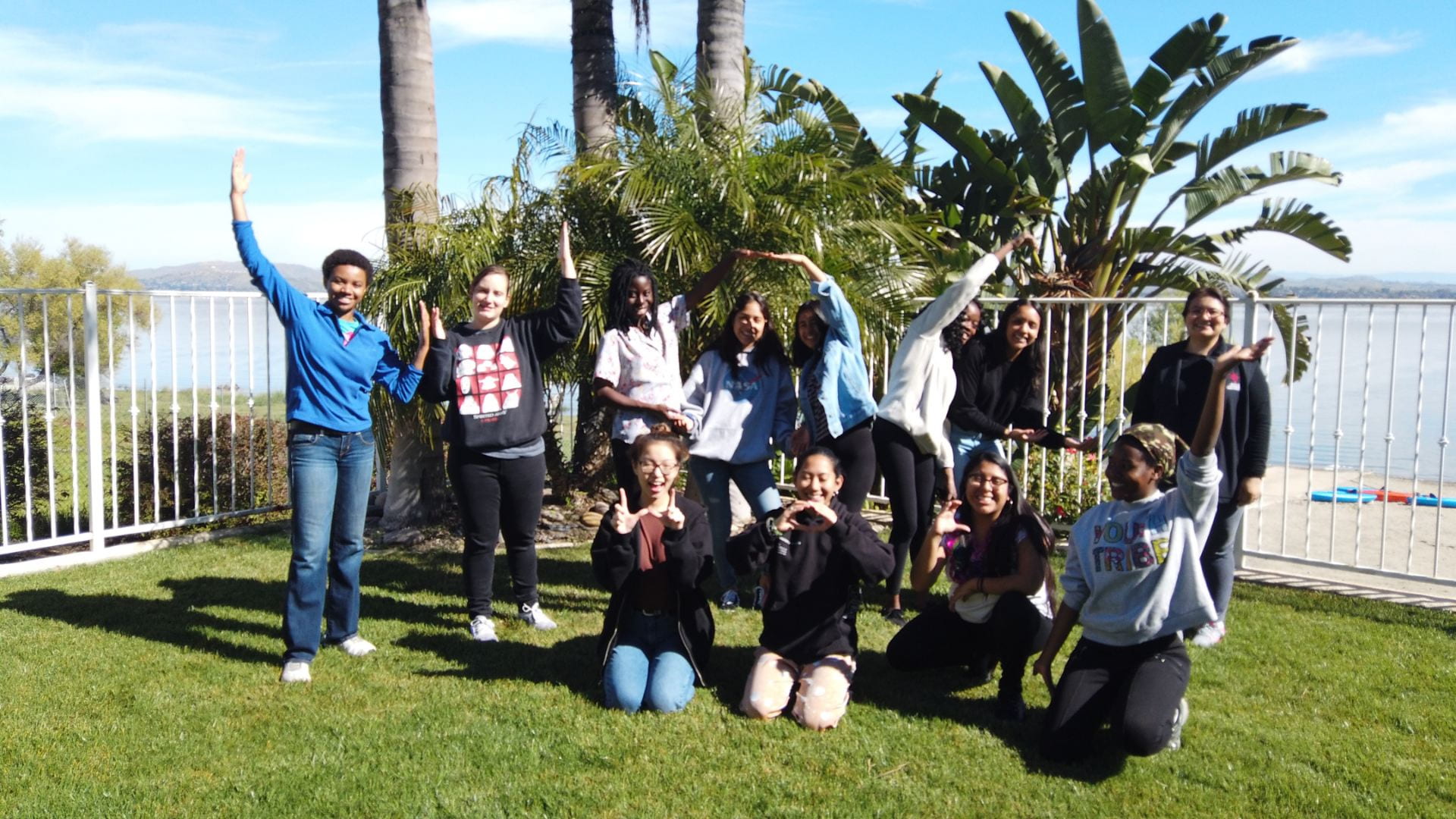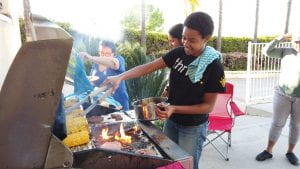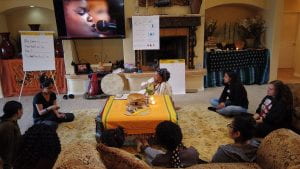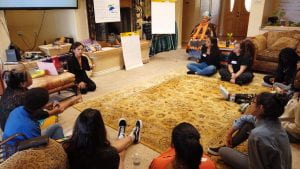A group of hand-selected students gathered in sunny Lake Elsinore on April 4-7, 2019, to learn from experienced facilitators about empowerment and their authentic voice. Sponsored by the Berger Institute and Kravis Lab for Social Impact, the students spent a full weekend together in a large, beautiful lake house and took part in a series of workshops. The facilitators, who are part of the International Cultural Arts and Healing Sciences Institute, helped them to examine their perspectives of themselves and others, especially in light of systemic injustices. They then shifted and reframed those perspectives through self-expression and dialogue. The workshops included music, visualization, breath work, film, theater, and active discussion. Students also bonded with each other throughout the weekend through additional activities, such as cooking meals together. At the beginning of the weekend, Gemma Bulos, the Director of Kravis Lab, had encouraged the students to not only be engaged and listen to each other, but to “connect in a way that we will be able to go back and have a posse of women who are going to help each other.” The students left with not only a better understanding of how to access and use their voices for effective communication and change, but with a network of peers who have a shared empowerment.
Special thanks to our facilitators: Gemma Bulos, Susan Callendar, and Amikaeyla Gaston Proudfoot!




